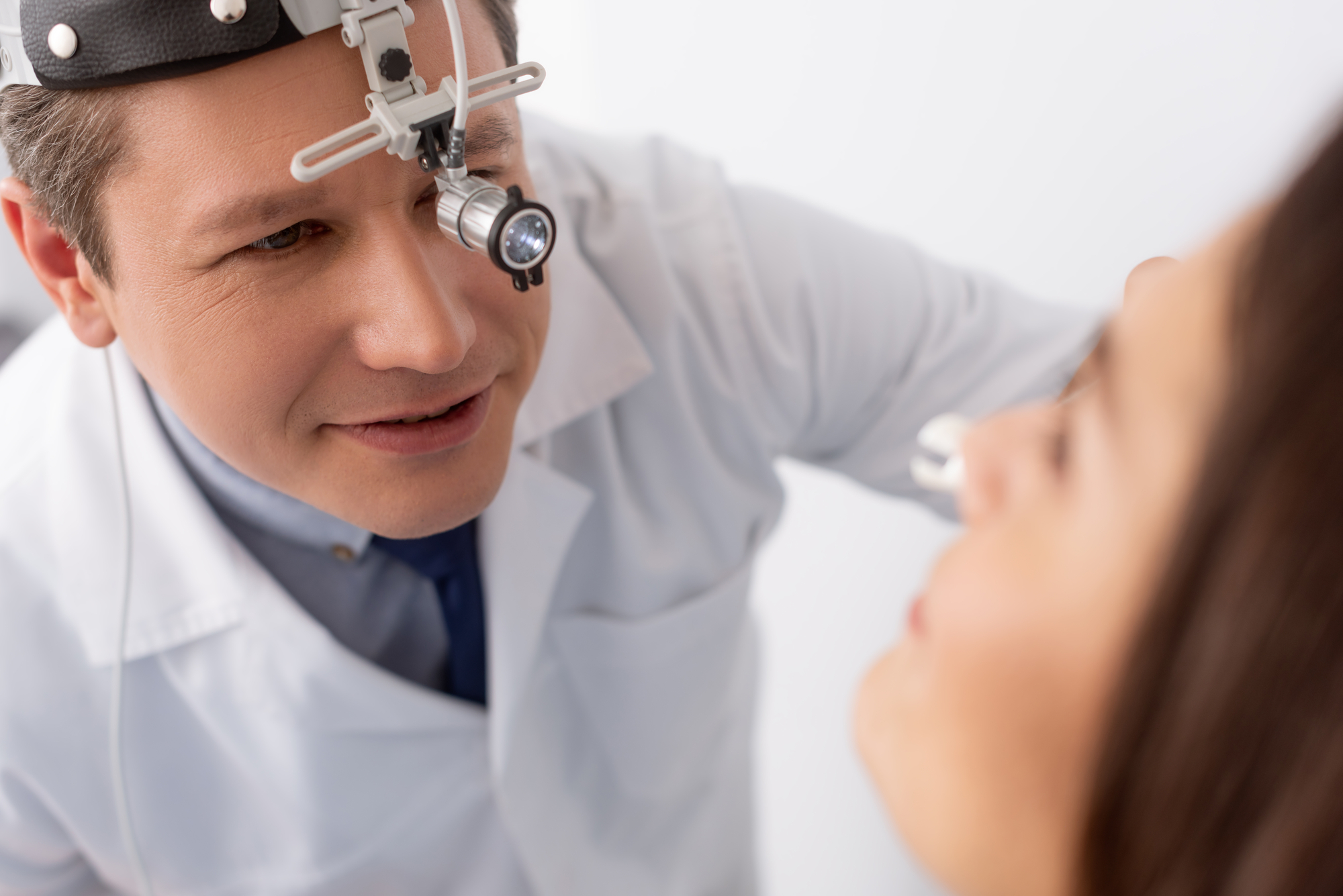Understanding Sleep Apnea and Deviated Septums
Mar 13, 2024

Different problems can lead to a lower quality of sleep. But two of the more common issues include sleep apnea and a deviated septum. Sleep apnea causes pauses in breathing when you sleep. A deviated septum can cause breathing difficulties that trigger snoring.
These sleep health issues share a connection that can make getting a good night’s rest harder. However, effective treatment is available. As part of Unity Health Network, Dr. Mark Weidenbecher provides ENT specialty services to treat septal deviation and manage sleep apnea. He offers the following information to help you better understand these health issues.
What Is Sleep Apnea?
This sleep disorder causes paused breathing during sleep. Different types can occur, with obstructive sleep apnea being more common than central sleep apnea. The obstructive type happens when throat muscles relax and block your airways. Central sleep apnea occurs when your brain doesn’t communicate with breathing muscles during sleep.
Both kinds can cause similar symptoms, which may include any of these:
- Snoring
- Stopped breathing while sleepingStruggling for air or gasping as you sleep
- Headaches when you wake up
- Dry mouth in the morning from mouth breathing
- Increased irritability
- Insomnia
- Concentration problems
- Sleepiness during the day
Not managing this condition may increase your risk of having certain health issues. A few of these include diabetes, heart disease, and high blood pressure. Sleep apnea can also cause problems in your daily life, such as difficulty focusing on tasks.
Understanding Deviated Septums
What exactly is a deviated septum? This happens when the wall between your nasal passages, called the nasal septum, leans more to one side, which causes the nasal passage on that side to be smaller.
Many people have some form of nasal deviation. It can be present at birth — known as congenital deviation. In severe cases, such as after a nose injury, a deviated septum can lead to nasal obstruction, making breathing through the nose harder. This can also happen due to swollen nasal tissue or nasal turbinates.
Some symptoms of a deviated septum may include:
- Nasal obstruction
- Facial pain
- Snoring or noisy breathing while asleep
- Nosebleeds
- Tendency to sleep on one side
What kinds of problems can a deviated septum cause? It can force you to breathe through your mouth, which can cause sore throats and a dry mouth. You might also find it difficult to sleep comfortably. Ongoing nasal pressure or congestion can also occur.
The Connection Between Sleep Apnea and Deviated Septums
Does a deviated septum cause sleep apnea? While it might contribute to sleep apnea symptoms — or make them worse — it’s not the sole cause of this sleep disorder.
What happens with septal deviation? The nasal blockage that occurs can lead to snoring and mouth breathing. You can’t breathe through your nose when your nasal passages are obstructed. Instead, you breathe through your mouth. This changes how air flows through your throat, causing the soft palate above your tonsils to flutter. This, in turn, can lead to snoring.
How do you know if you have either or both of these conditions? A sleep study or sleep testing can be done to diagnose sleep apnea. A physical exam can also help your doctor determine if you have a deviated septum causing nasal obstruction.
Treatment Options and Solutions
What kinds of treatments are available for deviated septums and sleep apnea? Options include both surgical procedures and non-surgical treatments.
For sleep apnea, some treatment options include:
- Continuous positive airway pressure (CPAP): A machine that helps keep your airways open
- Airway pressure devices: Bilevel positive airway pressure (BPAP) and auto-CPAP devices
- Surgical tissue removal: Removes tissue in the back of the throat, including adenoids and tonsils
- Surgical tissue shrinkage: Uses radiofrequency ablation to shrink tissue in the rear of the throat
For a deviated septum, treatment options may include:
- Medications: Decongestants, antihistamines, and nasal steroid sprays to manage nasal symptoms
- Septoplasty procedure: Septum surgery that corrects deviation to ease airway resistance through the nose
What can you expect from septoplasty? This standard ENT procedure is outpatient and takes roughly 30 to 45 minutes. The surgery involves removing the deviated parts of the septum and straightening it out. Recovery takes about 5 to 7 days.
Living with Sleep Apnea and a Deviated Septum
Having both of these health issues can make it hard to sleep and breathe comfortably. Managing sleep apnea with lifestyle changes, a CPAP machine, or other treatments helps ease symptoms.
What about nasal obstruction and snoring due to a deviated septum? Medications, such as nasal strips and nasal steroids, can help relieve symptoms temporarily. But they won’t correct the deviation itself.
To help keep your nostrils open, Dr. Weidenbecher also recommends the following:
- Add humidity to your room with a humidifier
- Keep your room temperature below 65 degrees if possible
Having septoplasty done corrects a deviated septum. After this surgery, you might find it easier to manage sleep apnea symptoms. This procedure helps open nasal passages for better breathing and helps reduce mouth breathing and snoring. A CPAP machine can also become more comfortable once you breathe through your nose.
Taking steps to manage symptoms can help improve your quality of life overall. You can look forward to getting better sleep, feeling alert, and being able to breathe easier. Keep in mind that you can also take steps to prevent sleep apnea. Maintaining a healthy weight, exercising, and avoiding sleeping on your back are a few tips for lowering your risk of this sleep disorder.
Why Choose Unity Health Network for Your ENT Needs
Unity Health Network provides exceptional care for ENT conditions. Seeking care with our ENT team means accessing advanced treatment options to help ease symptoms affecting your quality of life.
Ready to discuss treatment options for sleep apnea or a deviated septum? Or do you need sleep testing or other diagnostics? Contact Unity Health Network at 330-923-5899 to schedule a consultation with Dr. Weidenbecher for a comprehensive evaluation and personalized treatment plan.




